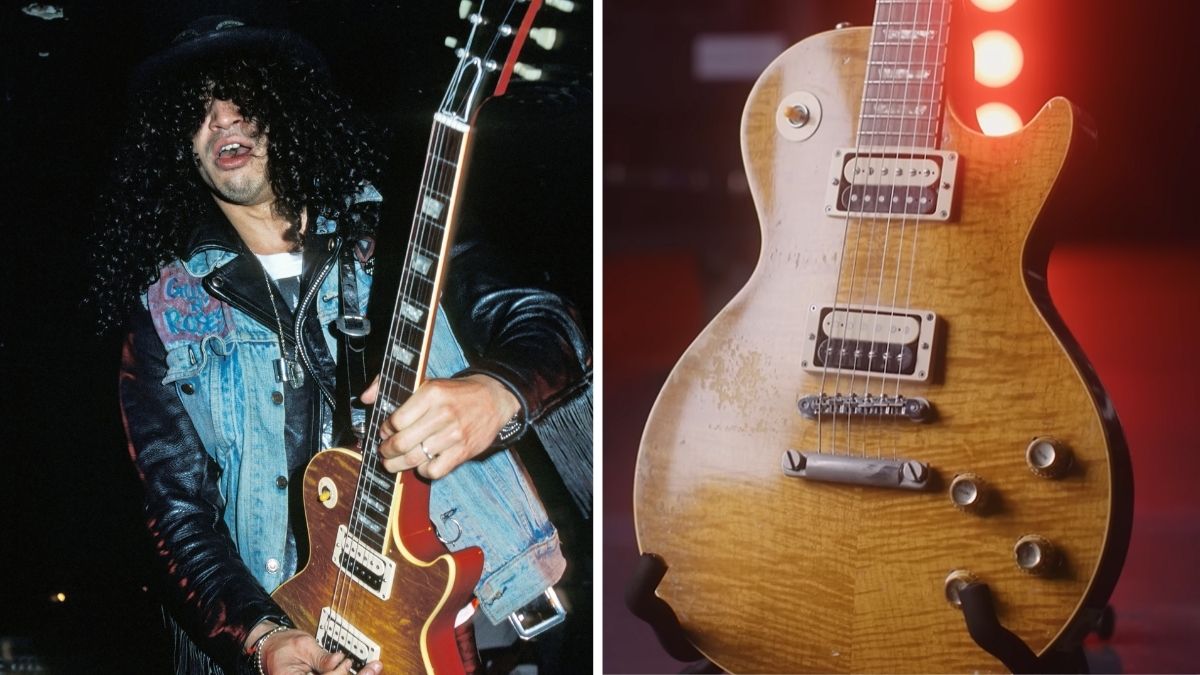“I realized I was never going to be a great player like Tommy Shaw, so I guess I’m just a power-chord and single-string lead player now. But I’m pretty good at it!” Styx’s James “J.Y.” Young on his guitar journey
The Godfather of Styx shares his most embarrassing moments on stage, the advice he would give his younger self, and why he’s Chicago through and through when it comes to the blues

All the latest guitar news, interviews, lessons, reviews, deals and more, direct to your inbox!
You are now subscribed
Your newsletter sign-up was successful
Where would U.S. melodic rock be without James “J.Y.” Young? Over the years, the Godfather of Styx has helped the Chicago rock institution negotiate the slings and arrows of changing pop-cultural tastes to craft a discography that presents high-concept progressive rock for our every day.
That surefooted songwriting saw Styx go platinum with late ‘70s and early ‘80s classics such as The Grand Illusion, Paradise Theatre, and the audacious rock opera Kilroy Was Here. Young was also an early adopter of the guitar synth, and is one of the most passionate advocates you'll find for the Sustainiac.
Here, J.Y. stops by GW for a quick-fire Q&A, discussing the songs that got him started on the instrument – and the electric guitar he would save in the event of an emergency.
What was the first song you learned to play?
“I had a Beatles songbook, and the first song I mastered from it was Please Please Me. All you had to do was play the backing chords; there was no solo or anything. Later, when I heard Eric Clapton’s Crossroads solo, that’s when I really started to learn how to play lead guitar.”
Do you remember your first gig?
“It was at some sort of high school dance with a band called the Catalinas. I was around 16. As we were all into automobiles at that point, we decided to call the band that name [The Pontiac Catalina was produced from 1950 to 1981]. I think we made $25 from the gig.”
All the latest guitar news, interviews, lessons, reviews, deals and more, direct to your inbox!
Ever had an embarrassing moment on stage?
“It happened on several occasions – to me particularly – on one of the smaller stages [Styx] used to play on in the early days. I’d wear new boots, but this one time, somebody had spilled water on the stage, and so I fell flat on my face. I quickly stood back up and kept going because the show must go on. After that happened once or twice, I decided to get different shoes and became more careful!”
What’s your favorite piece of gear?
“A device called the Sustainiac, which all my Strats are outfitted with. It allows me to get feedback forever, and it kind of helps the strings continue to vibrate.”
Suppose the building is burning down; what one guitar from your collection would you save?
“It would be this beautiful custom Strat knockoff that my guitar tech created for me. And again, because I’ve always been into automotive stuff and drag racing, it’s painted metal flake green, which is almost like an automobile finish on the outside. It’s got a maple neck and is also fitted with a Sustainiac. So I can stand there, play the guitar and get feedback all day – or until the batteries die!”
When was the last time you practiced and what did you play?
“I’m a lazy guitarist. When I was a teenager, though, I’d practice eight hours a day until I got my chops up to speed. And then when we got a recording contract, I continued to practice a lot for the first three or four albums. But then ultimately, I realized I was never going to be a great player like Tommy Shaw, so I guess I’m just a power-chord and single-string lead player now. But I’m pretty good at it!”
I’ve been privileged to meet Bo Diddley and Buddy Guy; I’m from Chicago, and both of those guys were Chicagoans too so I remained close with them
What aspect of the guitar would you like to improve?
“I have a lot of trouble with arpeggiated parts when I’m jumping around and doing different things on stage. It’s hard to do. So that’s something I’d like to improve. I’m also fascinated by electric blues, so that’s something I like to work on. I’ve been privileged to meet Bo Diddley and Buddy Guy; I’m from Chicago, and both of those guys were Chicagoans too so I remained close with them.”
What advice would you give to your younger self?
“I’ve been kind of blessed along this highway of life I’m on, so I wouldn’t change a thing. You do learn from the bad, and we’ve had some bad stuff. And when you celebrate the good, you try to duplicate the good stuff as you go forward. So you try and work out why that thing was good and then try and figure out some other way to make it work again.
“Sometimes [the good] could be something as simple as lifting a little thing from another type of music or just listening to another new instrument. Tommy Shaw, for example, breaks out a mandolin every now and then.
“We had a song called Boat on the River that sounds like an Eastern European folk song, and it was a huge hit all over Europe, yet we couldn’t get any traction at all in the States or Canada or anywhere else in the world with it.”
- Styx are on tour in the U.S. now. See Styx for full details.
Joe Matera is an Australian guitarist and music journalist who has spent the past two decades interviewing a who's who of the rock and metal world and written for Guitar World, Total Guitar, Rolling Stone, Goldmine, Sound On Sound, Classic Rock, Metal Hammer and many others. He is also a recording and performing musician and solo artist who has toured Europe on a regular basis and released several well-received albums including instrumental guitar rock outings through various European labels. Roxy Music's Phil Manzanera has called him, "... a great guitarist who knows what an electric guitar should sound like and plays a fluid pleasing style of rock." He's the author of Backstage Pass: The Grit and the Glamour.

